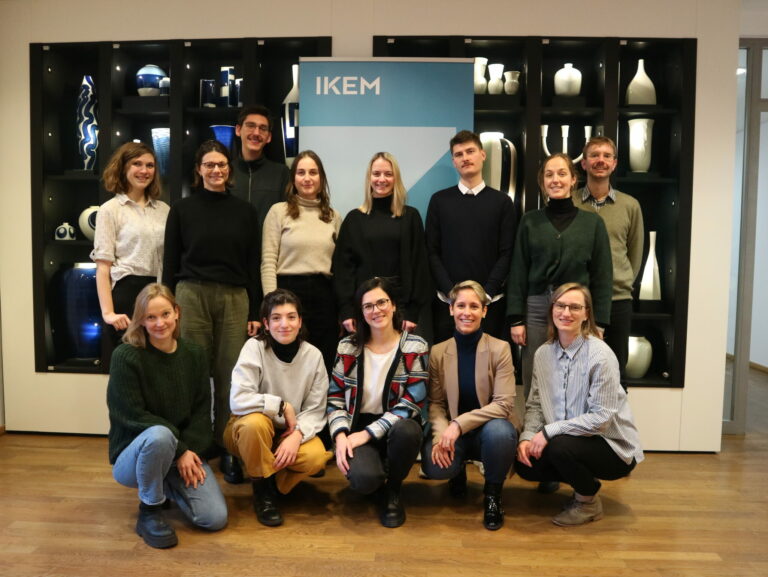Flexible, decentralised energy production can reduce emissions and put more power in the hands of consumers – if the right laws and regulations are in place. Judith Schäfer, head of IKEM’s Energy Law Department, explains the specific role of energy law in the fight against climate change. Schäfer also shares her vision of the energy law of the future and explains why energy law is currently in a state of flux.
What does IKEM’s Energy Law Department do?

In the Energy Law Department, we develop recommendations for action and legislative proposals for decision-makers. Our goal is to provide a solid foundation for their political decisions. We work on the proposals together with partners from industry – that is, partners working on the ground in this field – and with authorities, as well as with other research institutions, mainly from the technical field.
What role does the energy industry play in the fight against climate change?
The energy industry is responsible for 35% of greenhouse gas emissions in Germany. This figure is from the year 2020. If we compare this to emissions in 1990, we can see that emissions are declining. But in the future, electricity will play a more and more important role, especially if we consider that other sectors, like transport or the building sector, will increasingly rely on electricity. In these sectors, as in the energy sector itself, it will be essential to use electricity generated from renewable energy.
How does IKEM's Energy Law Department contribute to the energy transition?
More than any other area of law, energy law is in a state of flux – just like the climate itself. Because it is between the old fossil world based on centralised large-scale power plants and a new world based on renewable energies and decentralised systems. We have regulations for both worlds, but so far, we haven’t yet established a coherent set of rules that would make it possible to develop future-oriented energy laws. That will be an important task in the coming years.
What developments would you like to see in energy law?
I would like to see energy law continue to gain momentum in the future, as it is doing at the moment. The war of aggression in Ukraine – which violated international law – and the efforts of the European Union and our new federal government have given rise to many new energy regulations and generated momentum for the energy transition. I hope that we can sustain momentum in the future and that Germany will become aware of its role model function in this context, in particular vis-à-vis smaller, less prosperous countries.





